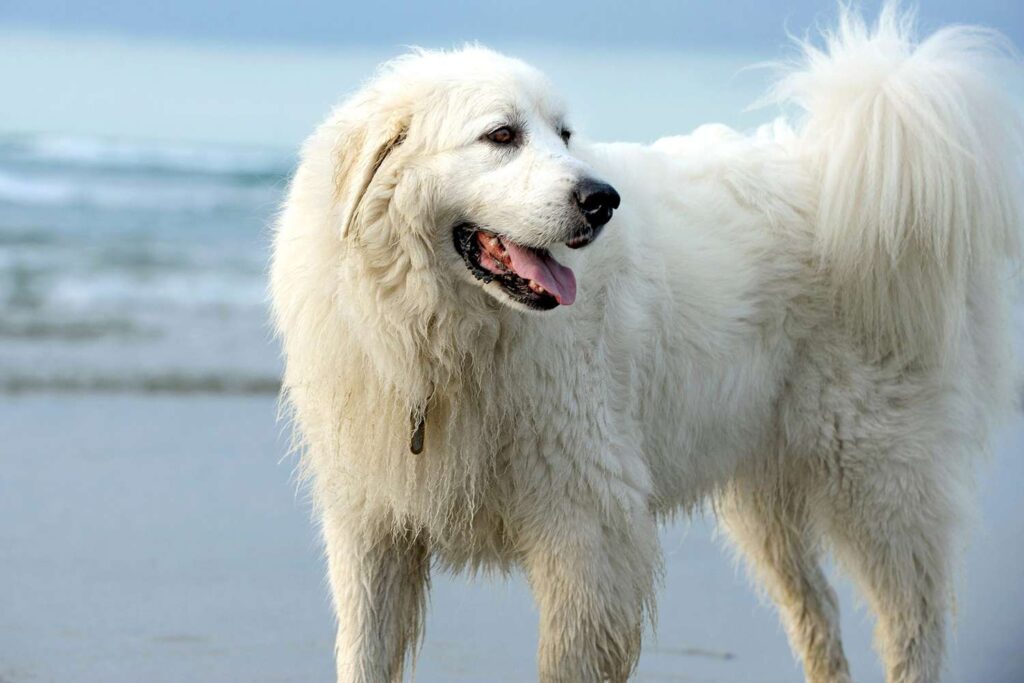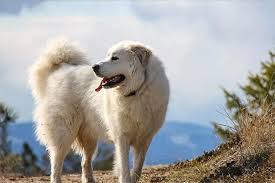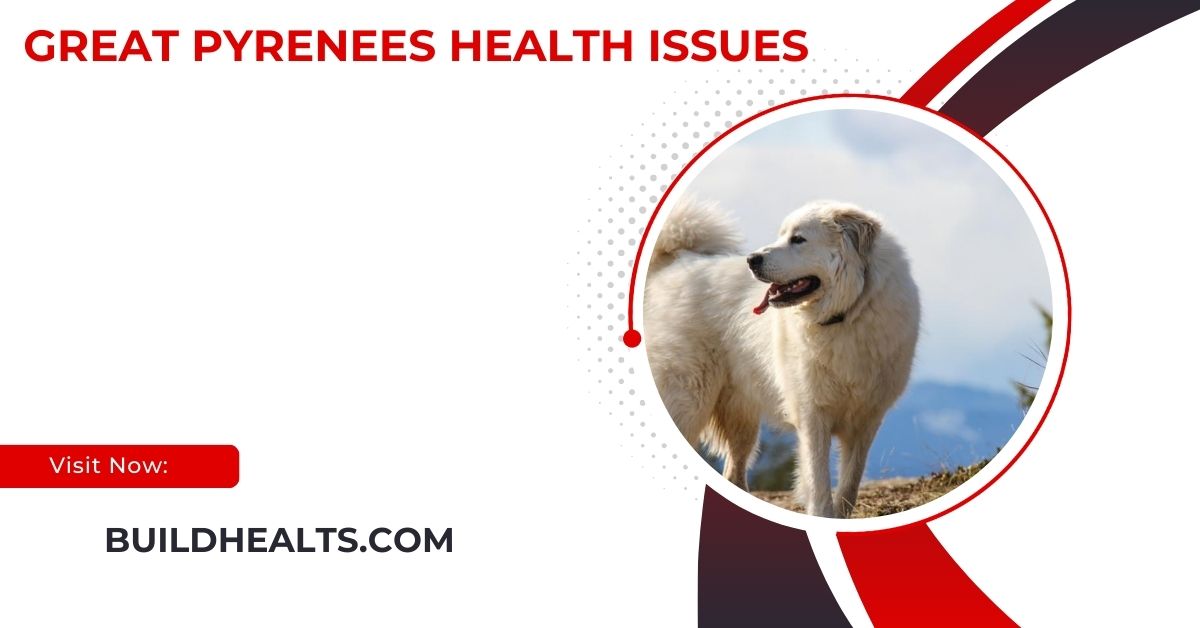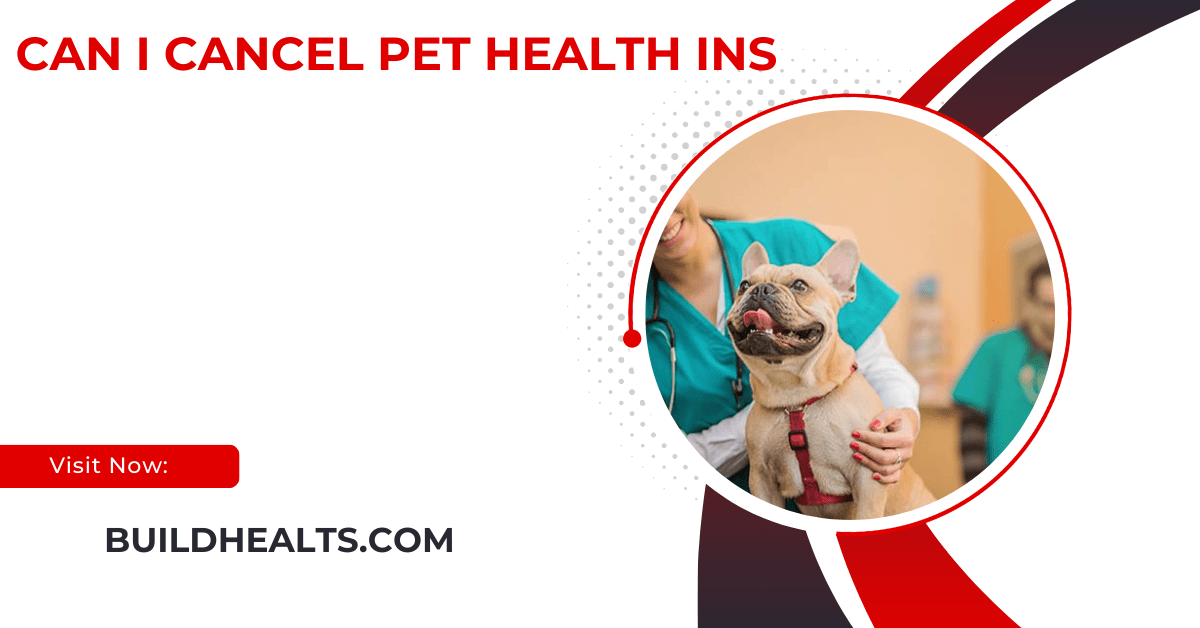Great Pyrenees are gentle giants that may face health issues like hip dysplasia, bloat, and ear infections. Regular vet check-ups, a balanced diet, and proper exercise are essential for their well-being.
This article explores the common health problems associated with Great Pyrenees dogs, their symptoms, preventive measures, and how to provide the best care for your furry friend.
Common Health Issues in Great Pyrenees:

Great Pyrenees dogs are generally healthy, but like all breeds, they can experience specific health problems. Knowing these issues can help you monitor your dog’s health effectively. Here are some of the most common health issues faced by Great Pyrenees:
Hip Dysplasia
What is Hip Dysplasia?
Hip dysplasia is a genetic condition where the hip joint doesn’t fit properly into the hip socket. This condition can lead to arthritis and pain in your dog.
Symptoms:
- Difficulty standing up or lying down
- Limping or favoring one leg
- Reluctance to run or jump
- Decreased activity levels
Prevention and Care:
To prevent hip dysplasia, make sure to get your Great Pyrenees from a reputable breeder who tests their breeding dogs for this condition. Maintaining a healthy weight and providing regular, low-impact exercise can also help.
Bloat (Gastric Dilatation-Volvulus):
What is Bloat?
Bloat is a serious condition that occurs when the stomach expands with gas and rotates on itself.This can lead to shock and can be fatal if not treated quickly.
Symptoms:
- Swollen abdomen
- Restlessness
- Unsuccessful attempts to vomit
- Rapid breathing or panting
Prevention and Care:
To reduce the risk of bloat, feed your Great Pyrenees smaller, more frequent meals instead of one large meal. Avoid intense exercise right after eating.
Also read: Is The Source Sacramento In The Sierra Health Foundation Building – A Complete Guide!
Osteosarcoma:
What is Osteosarcoma?
Osteosarcoma is a type of bone cancer that can occur in large dog breeds, including Great Pyrenees. It is aggressive and often requires immediate attention.
Symptoms:
- Limping or lameness in one leg
- Swelling near the bone
- Pain when touched
- Decreased appetite
Prevention and Care:
Regular vet check-ups can help catch early signs of osteosarcoma. If you notice any unusual lumps or swelling, consult your veterinarian promptly.
Hypothyroidism:

What is Hypothyroidism?
Hypothyroidism happens when the thyroid gland produces insufficient hormones.This condition can lead to weight gain, skin problems, and low energy levels.
Symptoms:
- Weight gain despite a normal diet
- Lethargy or lack of energy
- Hair loss or dry skin
- Increased sensitivity to cold
Prevention and Care:
Regular blood tests can help monitor thyroid levels. If your dog is diagnosed with hypothyroidism, medication can help manage the condition effectively.
Ear Infections:
What are Ear Infections?
Great Pyrenees have large, floppy ears that can trap moisture and debris, making them susceptible to ear infections.
Symptoms:
- Scratching at the ears
- Foul odor from the ears
- Redness or swelling in the ear canal
- Discharge from the ears
Prevention and Care:
Regularly clean your dog’s ears and keep them dry, especially after baths or swimming. If you notice any signs of infection, consult your veterinarian for treatment.
Also read: A List Of Global Health Dentist – Improving Oral Health Worldwide!
Regular Health Check-ups:
Regular check-ups are essential for maintaining your Great Pyrenees’ health. These visits allow your veterinarian to monitor for any potential health issues, update vaccinations, and discuss preventive care. Here are some important aspects of routine veterinary care:
Vaccinations:
Keep your Great Pyrenees up to date on vaccinations to prevent diseases such as parvovirus, distemper, and rabies. Vaccinations play a critical role in protecting your dog from serious illnesses and can help reduce the spread of these diseases in the community.
Discuss with your veterinarian the vaccination schedule suitable for your dog, and ensure you understand the importance of booster shots.
Dental Care:
Dental health is crucial for your Great Pyrenees. Poor dental hygiene can lead to gum disease, tooth loss, and other health complications. Regular dental cleanings by a professional veterinarian, combined with at-home dental care—such as brushing your dog’s teeth or providing dental chews—can significantly improve your dog’s oral health and prevent painful conditions that may affect their quality of life.
Weight Management:
Obesity can exacerbate many health issues in the Great Pyrenees, including joint problems and heart disease. To ensure your dog maintains a healthy weight, provide a balanced diet that meets their specific nutritional needs. Regular exercise, including daily walks and playtime, is essential for keeping your dog fit and active.
Monitoring your dog’s weight and adjusting their diet and exercise routine as needed can help prevent obesity-related health issues.
Spaying or Neutering:

Consider spaying or neutering your Great Pyrenees if you do not plan to breed. This procedure can help prevent certain health problems, such as uterine infections and testicular cancer, and can also reduce unwanted behaviors like marking territory or aggressive tendencies. Discuss the best timing for the procedure with your veterinarian to ensure it aligns with your dog’s health and development.
Nutrition and Diet:
A well-balanced diet is vital for your Great Pyrenees’ health. Proper nutrition not only supports their physical development but also enhances their overall well-being. Here are some tips for choosing the right food:
- Quality Dog Food: Choose high-quality dog food that meets large breed nutritional needs. Look for real meat as the first ingredient and avoid fillers and artificial additives. Check for the AAFCO statement to ensure the food meets nutritional standards.
- Portion Control: Follow the feeding guidelines on the dog food package based on your dog’s weight and activity level. Adjust portion sizes as needed to maintain a healthy weight and prevent obesity, which can lead to health issues.
- Supplements: Consult your veterinarian about necessary supplements for your Great Pyrenees, such as joint support supplements, especially if they are prone to hip dysplasia. Always choose high-quality supplements and discuss them with your vet to ensure they meet your dog’s specific health needs.
Exercise Needs:
Great Pyrenees are large dogs that require regular exercise to maintain their health and happinessHere are some helpful exercise tips:
- Daily Walks: Take your Great Pyrenees on daily walks for at least 30 minutes to help burn off energy and maintain a healthy weight. Longer walks or hikes can enhance their mood and well-being.
- Playtime: Engage your dog in playtime activities like fetch or tug-of-war. These games provide physical exercise and strengthen your bond, while keeping your dog mentally stimulated.
- Socialization: Expose your Great Pyrenees to different environments, people, and animals. Proper socialization helps reduce anxiety and promotes good behavior, making your dog more confident and adaptable.
Also read: Golden Retriever Health Issues – Common Health Problems Explained!
Grooming and Care:
Regular grooming is essential for the health and appearance of your Great Pyrenees. Their thick, double coat requires special attention to keep it healthy and looking its best.
Brushing:

Brush your Great Pyrenees at least once a week to remove loose fur and prevent matting. During shedding seasons, typically in spring and fall, you may need to brush more frequently—up to several times a week—to manage the increased amount of fur. Regular brushing not only keeps their coat healthy but also promotes bonding between you and your dog.
Bathing:
Bathing should occur as needed, usually every few months or when your dog gets particularly dirty. Use a gentle dog shampoo to avoid irritating their skin, as Great Pyrenees can be prone to skin sensitivities. Always ensure that you thoroughly rinse out all shampoo to prevent residue, which can lead to skin issues.
Nail Trimming:
Keep your dog’s nails trimmed to prevent discomfort and potential injury. Long nails can cause pain and difficulty walking, so it’s essential to check them regularly. If you’re unsure how to trim your dog’s nails, ask your veterinarian or a professional groomer for assistance to ensure the process is done safely and correctly.
FAQ’s
1. What health issues are common in the Great Pyrenees?
Common health issues include hip dysplasia, bloat, osteosarcoma, hypothyroidism, and ear infections.
2. How can I prevent hip dysplasia in my Great Pyrenees?
Prevent hip dysplasia by choosing a reputable breeder, maintaining a healthy weight, and providing regular low-impact exercise.
3. What are the symptoms of bloat in the Great Pyrenees?
Symptoms of bloat include a swollen abdomen, restlessness, attempts to vomit without producing anything, and rapid breathing.
4. How often should I take my Great Pyrenees for vet check-ups?
Annual vet check-ups are recommended, with more frequent visits for older dogs or those with existing health issues.
5. What should I feed my Great Pyrenees for optimal health?
Feed high-quality dog food formulated for large breeds, ensure portion control, and consult your vet for any necessary supplements.
Conclusion
In conclusion, Great Pyrenees need proper care to avoid common health issues like hip dysplasia and bloat. Regular vet visits, balanced nutrition, and exercise are key to their well-being. With preventive measures, you can ensure your dog stays healthy and happy. For further reading, you might explore detailed guides on canine nutrition and breed-specific care tips.




